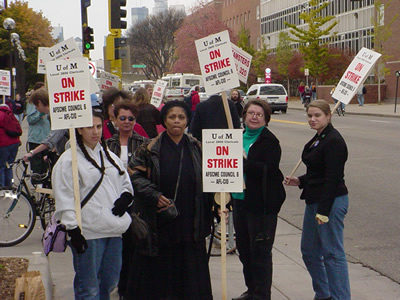This week brought inauspicious news: more union members work for the government than work in the private sector, “despite there being 5 times more wage and salary workers in the private sector.”***

Because of globalization, safer workplaces, Social Security, the ability to save for one’s own retirement through 401k plans, and a better-educated, more mobile workforce, only 7.2 percent of workers in the private workforce have chosen to join a union.
Compare that to the world of government employment, where there is no employer to tell people why a union might not be best for them (we’re the employer, but we’re a little busy with our day jobs) and you get 37.4 percent of government workers paying dues. All told, that’s 7.9 million that we pay and 7.4 million paid by people who actually create wealth.
And wealth, while a dirty word to some, is an important concept. Because private-sector unions can redistribute wealth from one private party (the company’s owners) to another (the company’s employees), one may not like a union’s political agenda but it’s tough to get too riled up about the direct role of a union (unless employees didn’t want it there in the first place).
But wealth as it relates to public-sector unions is different. We are the ones who pick up the tab, but it’s elected politicians — many of whom are helped into office by unions in the first place — that do the negotiating on wages, benefits, number of hours, etc. So public-sector unions continually drive up the cost of government by getting people elected to run the government.
Or, as one professor told the New York Times:
“At the same time the country is being squeezed, public-sector unions are a rising political force in the Democratic Party … They depend on extra money for the public sector, and that puts the Democrats in a difficult position. In four big states — New York, New Jersey, Illinois and California — the public-sector unions have largely been untouched by the economic downturn. In those states, you have an impeding clash between the public-sector unions and the public at large.”
See some recent examples from Oregon, Maine, California, Illinois, Minnesota, and Arizona of the ways public-sector unions stick it to taxpayers.
*** wouldn’t you know it, the Secretary of Labor actually used the news to push for card check and the Employee Free Choice Act
COMMENTS
Please let us know if you're having issues with commenting.